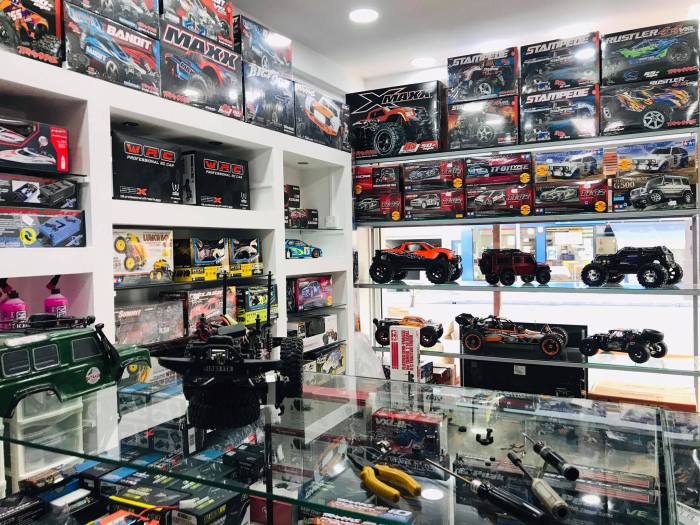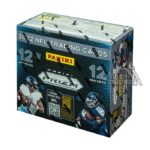Rc Car Hobby Store represents a niche market brimming with potential. The hobby’s enduring appeal, coupled with the ever-evolving technology of radio-controlled vehicles, creates a dynamic landscape for entrepreneurs. This exploration delves into the key aspects of establishing and managing a successful RC car hobby store, from market analysis and inventory management to customer engagement and online presence.
Understanding the target demographic, leveraging effective marketing strategies, and creating a compelling in-store experience are crucial elements for success in this competitive yet rewarding sector.
This analysis covers market trends, competitive landscapes, product range optimization, inventory management strategies, and effective customer engagement techniques. We’ll also explore the critical role of marketing and visual merchandising in creating a thriving business. Finally, the importance of a robust online presence and e-commerce strategy will be examined, offering a comprehensive guide to building a successful RC car hobby store.
Market Research: Rc Car Hobby Store

The RC car hobby industry, while seemingly niche, represents a surprisingly robust and dynamic market segment. Growth is driven by technological advancements, evolving design aesthetics, and a passionate community of enthusiasts spanning generations. Understanding the current landscape is crucial for any RC car hobby store aiming for sustained success.
Current Market Trends in the RC Car Hobby Industry
Several key trends are shaping the RC car market. The increasing popularity of electric-powered vehicles, driven by advancements in battery technology and motor efficiency, is a significant factor. These offer increased performance, reduced maintenance, and a more environmentally friendly option compared to nitro-powered models. Simultaneously, the market is witnessing a rise in ready-to-run (RTR) vehicles, catering to beginners and those seeking a quicker entry point to the hobby.
This contrasts with the traditional kit-building approach, which demands more technical expertise and time commitment. Furthermore, the integration of smart technology, such as GPS tracking and smartphone connectivity, is enhancing the overall user experience and expanding the appeal to a broader demographic. Finally, the growth of online communities and social media platforms dedicated to RC cars fosters a vibrant culture of sharing, learning, and competition, further driving market expansion.
Key Demographics of RC Car Enthusiasts
The RC car enthusiast demographic is diverse, encompassing individuals across various age groups and socioeconomic backgrounds. While a significant portion of the market comprises adult hobbyists aged 25-55, a substantial younger demographic (10-24) is also emerging, driven by exposure to online content and readily available, user-friendly RTR vehicles. These enthusiasts often share a passion for engineering, technology, and outdoor activities.
Beyond this, the hobby transcends geographic boundaries, attracting individuals with varied professional backgrounds, united by a shared interest in precision, control, and the thrill of competitive racing or off-road exploration.
Popularity of Different RC Car Types
The RC car market segments into distinct categories based on vehicle type and intended use. Off-road vehicles, encompassing buggies, trucks, and crawlers, generally command a larger market share due to their versatility and appeal to a wider range of skill levels. On-road cars, including touring cars and drift cars, cater to a more specialized audience focused on precise handling and high-speed racing.
Scale models, meticulously replicating real-world vehicles, appeal to collectors and enthusiasts valuing realism and detail. While off-road remains dominant, the popularity of specific categories fluctuates with technological advancements and evolving trends in design and performance. For example, the recent resurgence of interest in vintage RC car models demonstrates the enduring appeal of classic designs and a sense of nostalgia within the hobby.
Competitive Landscape of Local RC Car Hobby Stores
The competitive landscape for local RC car hobby stores is characterized by a mix of independent retailers and larger chain stores. The success of each store hinges on factors such as product range, pricing strategy, customer service, and community engagement. Direct competition often stems from online retailers offering a broader selection and potentially lower prices. However, local stores can leverage their expertise, personalized service, and community connections to establish a loyal customer base.
| Store Name | Location | Product Range | Price Points |
|---|---|---|---|
| Speed Demons RC | 123 Main Street, Anytown | Wide range of off-road and on-road vehicles, parts, and accessories; strong selection of RTR models. | Competitive pricing, with discounts for club members. |
| Hobby Haven | 456 Oak Avenue, Anytown | Focus on high-end models and specialized parts; limited selection of RTR options. | Premium pricing reflecting the quality of products offered. |
| RC Central | 789 Pine Lane, Anytown | Broad selection of vehicles, parts, and tools; caters to all skill levels. | Mid-range pricing strategy, aiming for a balance between value and quality. |
| The RC Garage | 1011 Maple Drive, Anytown | Specializes in vintage and collectible RC cars; limited new stock. | Pricing varies greatly depending on the rarity and condition of the models. |
Successfully navigating the RC car hobby store market requires a multifaceted approach. By understanding the nuances of the hobbyist community, leveraging effective marketing channels, and prioritizing a positive customer experience, entrepreneurs can build a thriving and sustainable business. The combination of a well-curated product selection, a strong online presence, and engaging in-store experiences are key to attracting and retaining customers in this dynamic and passionate market segment.
Ultimately, the success of an RC car hobby store hinges on its ability to cater to the specific needs and desires of its customer base while staying ahead of industry trends.

